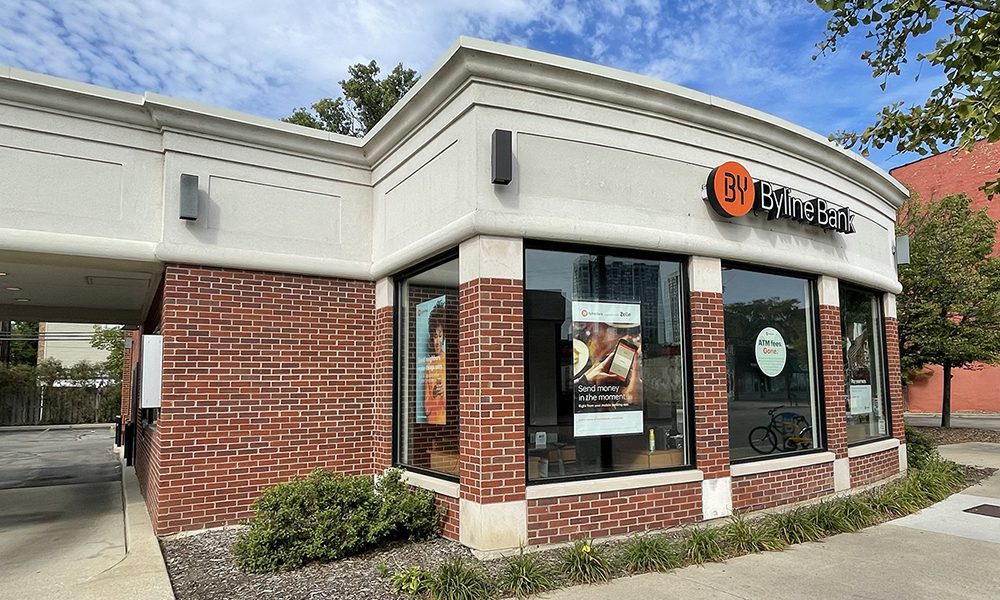Take the first step toward your financial goals with personalized support from Byline Bank.
Small Businesses Deserve a Financial Partner Who Knows Their Name—and Their Neighborhood

By Stephen Ball, Head of Business Banking, Byline Bank
Small businesses are always facing pressure to do more with less. From navigating rising costs and regulatory shifts to finding the right people and platforms to grow, it’s never been more important to have a financial partner that truly understands the realities small businesses face on the ground.
Community-centric banking isn’t just a nice-to-have—it’s essential. At its best, small business banking isn’t about transactional support. It’s about building long-term relationships with partners who know your name, your neighborhood and your business goals. This philosophy drives how we operate every day at Byline Bank, and it’s why we believe local matters more than ever.
When you’re growing your small business, it matters to have a bank that:
Understands the local landscape and how to navigate it
Small businesses don’t operate in a vacuum—they’re the cornerstones of neighborhoods, corridors and communities that are constantly evolving. The best financial partners aren’t just aware of these changes; they anticipate them as mutually invested neighbors.
Working with a community-centric bank that understands the specific local needs and challenges in the area offers small businesses a strategic advantage over a national institution. A local bank recognizes that success in Chicago looks different than success in San Diego or St. Louis. They know which commercial districts are growing, what local construction projects might impact foot traffic, and how policy decisions at the city level ripple through the local economy.
That proximity helps business owners plan smarter—whether identifying the right time to expand, navigating shifting customer patterns, or staying resilient during times of uncertainty. Local bankers drive down the same streets as their clients, attend the same events and read the same headlines in their community papers. That real-time, real-world understanding can make the difference between an out-of-touch, reactive lender and a proactive financial partner.
A community-centric bank looks beyond balance sheets to evaluate what’s happening across the local economy. They know when and how to direct a business to grant opportunities, anticipate industry headwinds, or advise on how a storefront fits into a changing block, helping business owners adapt, plan and thrive. This kind of embedded awareness becomes a true strategic asset. The closer your banker is to your business, the more they can deliver relevant advice—not just financial products.
Has local bankers right in your neighborhood
One of the biggest advantages of community banking is having direct access to real people who live and work in the same neighborhoods as the businesses they serve. Working with a local bank ensures your banker understands your business cycle, your goals and your pain points—and they’re not just showing up once a year.
These relationships are built to last through economic highs and lows, be it a seasonal slump, preparing for growth or facing an unexpected challenge. Because community-centric bankers are embedded locally, help is often offered before you even ask.
For example, at Byline, every small business client is assigned both a business banker and a branch manager—professionals who have built their careers around helping small businesses grow. From walking someone through the basics of commercial lending to supporting a fraud concern in real-time, we’re not a name on a screen or a 1-800 number. We’re your neighbors. And we’re here to help.
Cuts through red tape for real-time decisions
Few things frustrate small business owners more than the slow, impersonal lending process at larger institutions. Local decision-making doesn’t just allow banks to say “yes” faster—it helps ensure you receive a financing solution that is actually tailored to your business.
Community banks empower their bankers to act quickly. Whether it’s a $100,000 loan or a $4 million mortgage, local institutions can often provide a decision in a fraction of the time it takes a large bank to escalate a request through multiple layers of review. That speed and flexibility matter—especially when you’re on a tight timeline or seizing a critical opportunity.
With decision-makers who know your story, your neighborhood and your market, community banks can offer financial products that are actually built for the way small businesses operate—simple, clear and right-sized. From term loans and lines of credit to fraud prevention tools, the goal is always the same: make it simple, and make it work.
Ask the right questions—and expect real answers
Banking for small businesses shouldn’t feel like navigating a maze or trying to meet thresholds designed for corporations. It should feel like a relationship that’s built on mutual trust, real conversations and shared success.
If you’re evaluating a banking partner, treat the process like a key hire. Ask how long your banker has worked in business banking. Find out if the institution has a team focused on businesses like yours. Ask whether you’ll work with one person or cycle through four in five years. And don’t forget to ask where decisions are ultimately made, and if your banker has the local authority to make them.
Choosing a financial partner is about more than just rates and terms. It’s about people. The right partner needs an understanding of your story, your potential and your place in the community beyond just your financials. Small businesses are the backbone of every strong neighborhood, and that’s something worth banking on.




